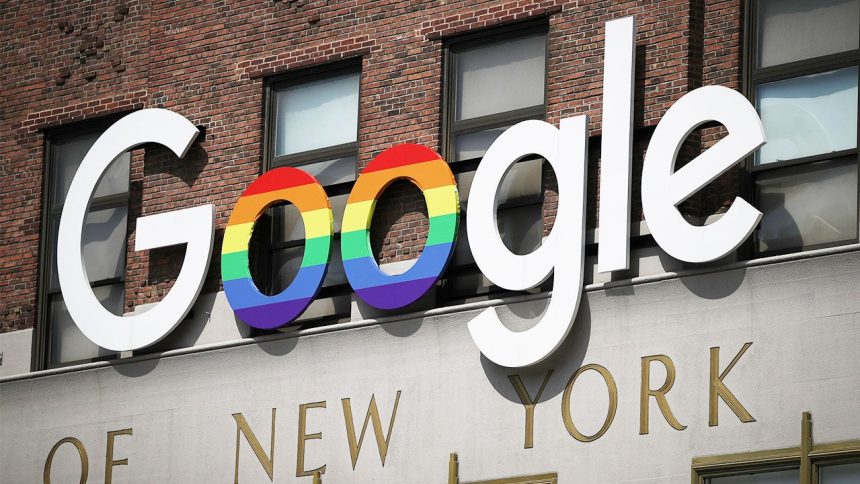You might know Alphabet better by its largest subsidiary – Google – than by the name adopted in 2015. Google dominates the search industry and generates tons of cash flow every year. It has quickly risen to become one of the world’s largest companies. The remainder of Alphabet’s business units is called “other bets” and focuses on startup investing, self-driving cars, AI research and hot air balloons delivering internet access, among other units.
Sales have grown immensely over the last few years, and 2021 saw revenue rising about 41 percent from 2020. With $76 billion of profits generated last year, Alphabet is a very popular company among investors.
Here are some key things to know if you’re investing in Alphabet and how to do so.
Investing in Alphabet by the numbers
- Alphabet is among the most valuable companies in the world, with a market capitalization of $1.35 trillion, as of September 2022.
- Alphabet earned $76 billion in profit in 2021, and analysts forecast that it will earn almost $71 billion in 2022, according to Seeking Alpha.
- Alphabet makes effectively all of its money through its well-known Google subsidiary, which includes revenue generated from Google Search, YouTube ads, Google Network and Google Cloud.
- Alphabet’s CEO is Sundar Pichai, who took up the top role in October 2015, after having joined Google back in 2004.
- Alphabet has three classes of stock: Class A with about 6 billion shares, Class B stock with 885 million shares and Class C with 6.16 billion shares, as of July 22, 2022.
- Alphabet has split its stock just twice since going public in 2004: The first split took place in 2014 as part of the creation of multiple share classes and a second time in July 2022, when it did a 20:1 split.
Alphabet recent developments
- On Sept. 14, 2022, South Korea fined Alphabet about $50 million for collecting and using personal information with the consent of users to serve targeted ads.
- On Sept. 14, 2022, the E.U.’s General Court upheld a prior ruling that found Google liable for abusing its market dominance in its Android mobile operating system.
- On July 18, 2022, Alphabet completed its previously announced 20:1 stock split.
- On April 13, 2022, Alphabet announced it would invest approximately $9.5 billion in its U.S. offices and data centers in 2022.
- On Feb. 1, 2022, Alphabet announced in its fourth-quarter 2021 earnings press release that its board of directors approved a 20-for-1 stock split.
- On Oct. 7, 2021, Google announced plans to ban digital ads from appearing next to content denying climate change on its platform and also on its YouTube video service.
- On Sept. 10, 2021, Reuters reported that the global semiconductor shortage forced Google and India’s Reliance Industries to delay the launch of a low-cost smartphone that the two companies have been jointly developing.
How to buy Alphabet stock
1. Analyze Alphabet and its financials
Analyzing a company’s competitive position and financials is probably the single hardest part of buying the stock, but it’s also the most important. The best place to begin is with the company’s Form 10-K, which is the annual report that all publicly traded companies must file with the SEC.
The 10-K can help you understand a lot about the company:
- How it makes money and how much
- Its assets and liabilities
- Its profitability trend over time
- The competitive landscape
- The various risks faced by the business
- The management team and how they’re incentivized
The annual report is a great first step at finding out about the company, but you’ll want to do more than this. You’ll want to study what other companies are doing to compete, for example. It’s important to have a broader perspective on the industry.
For example, while Google is dominant in search, it faces other high-powered competitors as well. Microsoft runs its own search service, and Facebook is a huge player in advertising, too. Alphabet is also developing other innovative types of businesses, including Waymo, an autonomous driving operation.
2. Does Alphabet make sense in your portfolio?
Alphabet is a well-run company with a dominant position in an important and growing market. It’s a blue chip, meaning it’s one of the most well-regarded companies. So the company will be a fit for almost any investor and it’s in many stock portfolios. However, Alphabet doesn’t pay a dividend, a fact that may keep some investors from buying it, no matter how great it is.
So you’ll want to consider the following questions:
- Does a growth company fit your needs?
- Will you be able to continue analyzing the business as it grows?
- Given the stock’s volatility, will you be able to hold on if it drops or even buy more?
- Alphabet doesn’t pay a dividend – do you need that in a stock?
If you’re buying just a little bit of Alphabet as a starter position or to get some skin in the game, these considerations might not matter as much as when you take a full position.
3. How much can you afford to invest?
How much you can afford to invest has less to do with Alphabet than with your own personal financial situation. Stocks can be volatile. So to give your investment time to work out, you’ll likely want to be able to leave the money in the stock for at least three-to-five years. That means you should be able to live without the money for at least that length of time.
Committing to holding the stock for three-to-five years is important. You’d hate to have to sell the stock when it’s near a low only to watch it rebound much higher after you exited the position. By sticking to a long-term plan, you’ll be able to ride out the ups and downs of the stock.
If you’re investing in individual stocks, you’ll want to keep the percentage of any single position between three and five percent. This way you’re not heavily exposed to one investment breaking your portfolio. If the stock has more business risk, then you might choose an even lower percentage than this range.
In addition, rather than just committing a one-time sum of money to the stock, consider how you can add money to your position over time.
4. Open a brokerage account
While opening a brokerage account may sound like a difficult step, it’s actually quite easy, and you can have everything set up in 15 minutes or so.
You’ll want to select a broker that caters to your needs. Are you trading often or infrequently? Do you need a high level of service or research? Is cost the most important factor for you?
Here is Bankrate’s list of best brokers for beginners.
After you’ve opened your account, you’ll want to fund it with enough money to buy Alphabet stock. But you can take care of this step completely online, and it’s simple.
5. Buy Alphabet stock
Once you’ve decided to buy Alphabet stock and you’ve opened and funded your brokerage account, you can set up your order. Use the company’s ticker symbol when you input your order. In the case of Alphabet, you have two choices, since the company has multiple public stock classes – GOOG and GOOGL – the latter of which has voting rights. (This structure in itself is a hidden risk for many tech companies, especially new IPOs.)
Most brokers have a “trade ticket” at the bottom of each page, so you can enter your order. On the broker’s order form, you’ll input the symbol and how many shares you can afford. Then you’ll enter the order type: market or limit. A market order will buy the stock at whatever the current price is, while the limit order will execute only if the stock reaches the price you specify.
If you’re buying just a few shares – and Alphabet costs around $100 per share – then stick with a market order. Even if you pay a little bit more now for a market order, it won’t affect the long-term performance much, if the stock continues to perform well.
Bottom line
Buying a stock can be exciting, but success won’t happen overnight. Still, investing in stocks is one of the best ways to earn passive income over time, and investors should take a long-term perspective on their investments, and they should consider taking advantage of dollar-cost averaging, if they believe in the stock for the long haul.
With dollar-cost averaging, investors add a set amount of money to their position over time, and that really helps when a stock declines, allowing them to purchase more shares. High-flying stocks can dip from time-to-time, so the strategy can help you achieve a lower buy price and higher overall profits.
Alphabet FAQs
-
-
Alphabet earned $76 billion in profit in 2021, and analysts forecast that it will earn almost $71 billion in 2022, according to Seeking Alpha.
-
Alphabet makes effectively all of its money through its well-known Google subsidiary, which includes Google Search, YouTube ads, Google Network and Google Cloud.
-
Alphabet’s largest competitors include other big tech giants such as Apple, Microsoft, Amazon and Meta Platforms.
-
The largest shareholders of the company as of June 29, 2022 include Vanguard, Blackrock and Fiera Capital, according to Yahoo Finance.
-
Alphabet’s CEO is Sundar Pichai, who took up the role in October 2015, after having joined Google in 2004 and assumed positions of increasing responsibility over the intervening years.
-
Alphabet has three classes of stock: Class A stock with voting rights has about 6 billion shares, Class B stock with 10 times the voting rights as Class A and held only by founders has 885 million shares and Class C with no voting rights has 6.16 billion shares, as of July 22, 2022.
-
Alphabet does not pay a dividend, as of September 19, 2022.
-
Alphabet has split its stock on two occasions: In 2014, it split its stock in a ratio of 1998:1000 as part of the creation of multiple share classes. In July 2022, the company split its stock at a ratio of 20:1, so shareholders now have 20 times as many shares, but the stock price was adjusted to be 1/20th as much as before.
-
Read the full article here














